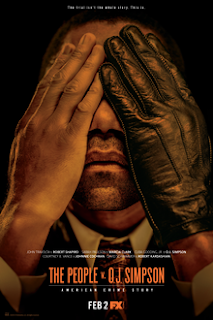Director: Clint Eastwood
Yet another big one from Clint Eastwood. This 94-year-old may have directed his last movie, but one can never say never. This one makes us think, as did his previous offerings, like 'Letters from Iwo Jima', 'Flags of Our Fathers', and 'Gran Torino'.
It is a courtroom drama along the lines of '12 Angry Men', where the moral decision of convicting a person of a serious crime is the mainstay. This film, however, goes one step further. One of the jurors, Juror #2, may have committed the murder in the case he is judging. On the day of the incident, the Juror witnessed the tussle between the accused and his girlfriend at a bar. The girlfriend was found dead later that night by a creek beside a road. The accused was seen following his girlfriend in his car. With his destructive anger management issues, he was naturally accused of having mortally wounded his girlfriend.
The trouble is Juror #2 is a recovering alcoholic and was nursing the pain of losing a pair of twins a year previously. He was fighting his inner demons to resist the bottle again. Self-restraint allegedly won the day. As he left the bar, he drove the same country road as the other two. Just as the Juror bent to pick up his phone to answer a call from his wife, he felt a thud. He looked up and saw nothing except for a deer crossing sign. He checked his car for damage and moved on, assuming he had hit a running deer.
Juror #2 slowly realises, as he sits through the case, and with sudden flashes of his accident from the same night in his mind, that he could be the killer instead of the accused. What was he to do? Resign from his post, which may turn investigations towards him. At a time when he is looking forward to being sober for so long and ushering in his soon-to-be-born child, the last thing he needs is to go to prison.
With all the evidence stacked against the accused, argued by a DA with political ambitions, the accused is sure to be incarcerated for the crime he did not commit. A moral dilemma ensues within the Juror. Should he ensure that the jury delivers a unanimous decision of guilty so he (the Juror) is off the hook? If a mistrial is declared when the jury cannot convict him, the police may have to investigate again, and the Juror's name may crop up.
Does the truth reveal itself in the end? If the truth is so powerful and can maintain balance, why must we defend it? Is it everyone's moral duty to protect the truth no matter what it may do to them and the people around them? In the same breath, we insist that many versions of the truth exist. Who determines which is true, anyway? Many versions of it seem right from their perspective. Have they not heard of the Rashomon effect? Sometimes, truth is watered down to preserve peace.
Still, we insist on a fair hearing and that everyone deserves to be adequately represented. And we realise that many guilty criminals, with the power of the best legal minds that money can buy behind them, get away scot-free through technicalities. The innocent, too, can be punished with overwhelming circumstantial evidence. When a notoriously bad person who had escaped convictions before is penalised for a crime he did not commit, we say that his crimes have finally caught up with him. We justify the wrongful conviction akin to a person who lives by the sword and dies by it. Are the lawyers less enthusiastic about defending such criminals, or is wealth the determinant?Are you being dishonest by putting your self-interest above doing the right thing? After all, no man is an island. On the other hand, no innocent man should be punished for something he did not do. Some feel pressured to mete out instant justice. We take shortcuts and cut down on paperwork. We don blinkers to confirm our biases and refuse to see beyond our scope of vision.
When a miscarriage of justice happens right in front of your eyes, just how far would you go to right the wrong, especially when it involves an admission of guilt? With the admission of error, you must bear the brunt of losing face and position.
There are no answers, only questions. The film ends on a cliffhanger, probably on purpose, so viewers can ponder it and draw conclusions. It brings viewers into serious discussions on truth, justice, morality, and guilt.






.jpeg)





